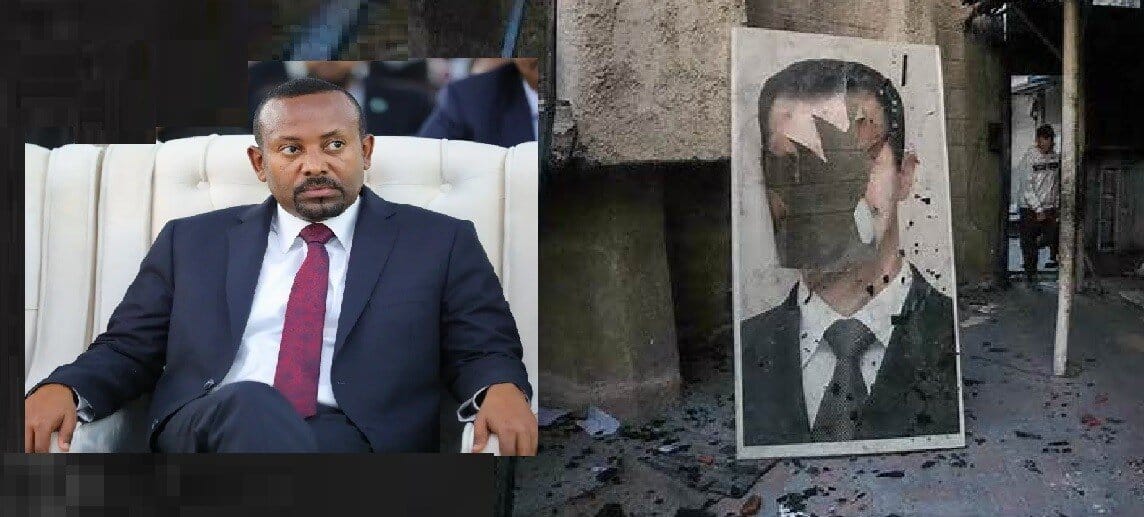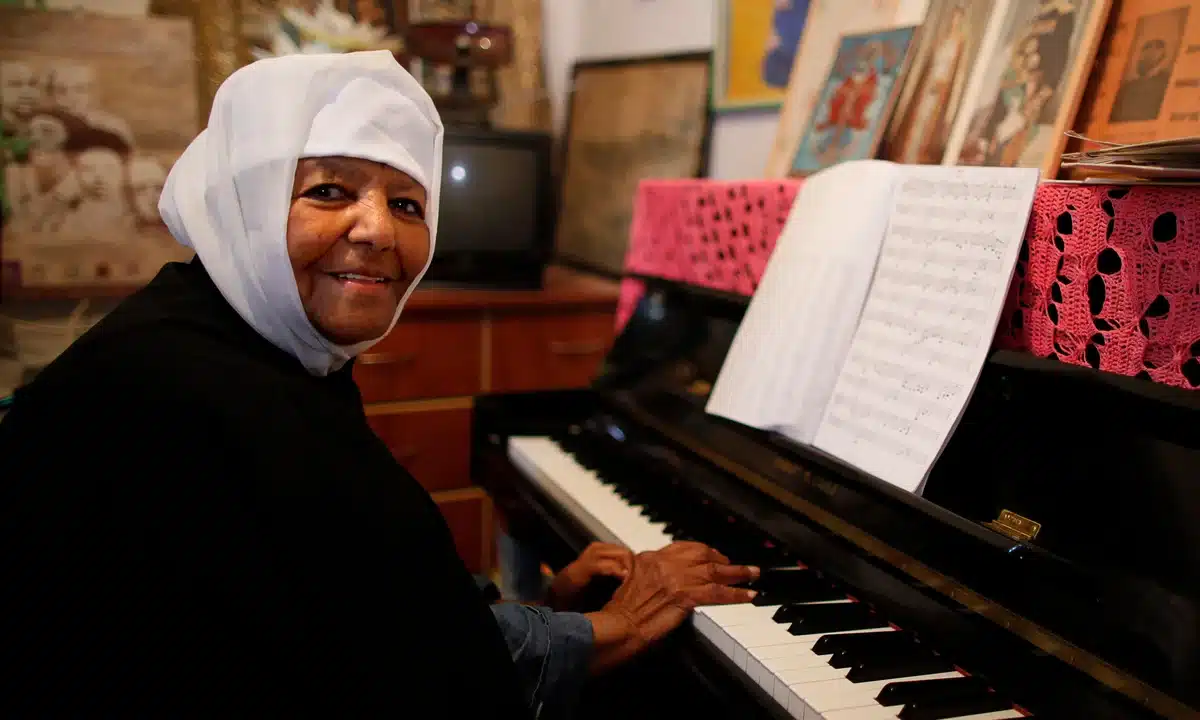Ethiopia is at a cross road. The ability of the regime to govern is not only declining but dyeing. The political economical and social discontents are multiplying by the day. Ideologically foundations of the regime are bankrupt. It did not remedy what it termed as the hegemony of the Amhars over the rest of the nations ethnic groups and accomplish equality among Ethiopians. It has instead victimized Amharic speakers and achieved heinous predominance of a Tigreiana speaking elite which is loathed with aversion by the majority. The situation has conceivably created a fear of reprisals among the Tigearina speaking population whose antipathy to regime is not recognized by many of the non Tigrean speakers. The economic situation is equally disturbing, a rampant inflation and predatory and parasitic capitalism has ruined not only the low class but the ever shrinking middle class.
On top of all these, ethical and moral bases of the Ethiopian culture have been dismantled by reckless social policies of the regime. The regime’s own police have recently confirmed that, the rate of drug addiction is alarming, if we add up addiction to mild stimulants like chat, a disheartening picture will emerge. The crème de la crème of the society, university students, has joined the prostitution racket. There are web pages and face book accounts marketing exposed pictures of teenage students for foreign tourists as well as the morally degenerated sections of the Ethiopian Diaspora and corrupt elements of regime. Women today are seen as mere sexual objects of the haves.
Sadly this social decadence is glorified in arts. The extent of debauchery emerges by taking a look at the depiction of women in writings of young and aspiring writers like Beukitu Syeome and comparing it to women in works of the literary giants of Ethiopia. The hero of Beuketes novel Meuise is an anti social, anti culture, sex addict, for whom attracting debased sex toys is the summit of a glorious life. Similarly, the motherly lady in a tong is depicted as nothing but derailed sex object. Have Ethiopian women degenerated to this extent? I contend that this is neither a true depiction Ethiopian women nor even Meuise, a good friend of both mine and the author. The Muise I know was a charismatic nationalist and a left lining young man not an anti social womanizer. In comparison, virtue and courage were the charter marks of, Tisonane, the heroin of, Degnchew Worku’s Adeferse. This beauty was elevated to represent the sublime beauty of the heavens, Zion, and Ethiopia by implication. Correspondingly, Sebelowengel of Adiss Alemayeue, was portrayed as a progressive beauty and the bride of all times. She gave up comfort and riches for the knowledgeable but socially disadvantaged Bezebeh and ends up giving her life for her true love; a man who is the symbol of progress and wisdom.She was the symbol of Ethiopia. Last but not list even the prostitute in Tsegeye G/Medhin’s famous poem was a social critic who abhors moral decadence of society.
On the other hand, even in this time of lamentation, the young and brave women and men in kaltiye prison may give one some comfort. I however beg to disagree. I contend as Armah did, the beautiful ones have yet to come; these brave young men and women are but sparkles which showth the power and significance of the darkness. .Thousand are confirming to this frustration and hopelessness by daily attempting to escape from the country in often perilous journey which ends up in agonizing death. What is to be done? “Cry my beloved country, cry for the child yet to born out of your womb”
Brave on; let us try to think clearly. It is obvious that this cannot continue for long and change is eminent .There are however no agents of change: those who are on the ground are weak unorganized and without mass following. The only mass moment which showed its capacity to organize followers in every corner of the country is the Muslim moment. . We must therefore examine, why Ethiopians failed to defend the nation and its people in the hours of its trial? Is this because we are cowards as some would claim? Or is it because of the foreign backers of the regime as some others will argue? Or is it our because of our inherent inability to create and organize a mass political moment without infightings and divisions due to the lacunas of our culture or some other factors as contend by still some others ?
I will argue that none these reasons explain the quagmire. A brief overview of all political organizations of the country will reveal that there is a lack of ideal which is capable of uniting the country. One brand of political parties propagate ethnic rights for x or y ethnic group. These parties are limited in their appeal to the particular ethnic group and especially the hard line elements that group. Move over radicals of these ideology by projecting session are doing more harm than good in uniting the nation. The solution as proposed by these parties is a more radical ethnic fragmentation of the country than what is currently constituted by the regime. This will not bring a regime change and if it does it will end by in bloodshed and suffering of an epic proportion.
On the other hand, the Ethiopian nationalist moments and parties which are often referred by the ethicists and the regime alike, as the Amhars have lost their capacitiy to project a united country which works for its entire people. They have failed to securitize and comprehend changes that occurred for the past twenty years. Politics of identity ones propagated at this extent is irreversible. Any attempt to reverse will end up in disintegrating the country. The solution must include incorporating the ethnic arrangement and redefining Ethiopian nationalism as an ideological counterpart to the regime. It is impossible to organize a mass without coherent ideology which offers solutions to the problems of the nation. And if the mass is not organized change will not come. Even if it comes it will be a rebellion of a desperate population which will usher the darkest days in the life of the nation.
Perhaps understanding the delicacy of the situation political moments like Ginbot 7 tried and in my opinion has not succeed so far to replace democracy as a substitute ideal for Ethiopian nationalism. According to them ones a democracy is achieved all the ills of the nation, whether economical, or political will eventual wither away. They however fail short of pointing out practical and workable solutions to many of the big questions, like the issue of reconciling national unity, territorial integrity and sovereignty of Ethiopia with the ethnic ideology. In other words they have not explained and elevated their stand on democracy to a level of political ideology by offering insights that can merge the concepts of Ethiopian nationalism, ethnic rights and democracy. Democracy or any other ideal is mainly an instrument to settle political problem and usher a peace in which citizens of the polity may be able to live peaceful lives without fear of an imminent instability. It is therefore more apparent than ever that an ideal which will marry the dormant but still highly significant ideal of Ethiopian nationalism and ethnic revivalism with democracy is needed. It is my humble opinion that to call for democracy without showing how it can be organized to save Ethiopia will not be able to inspire the mass with hope of better future .It is an ideal which inspires hope of a better future and hope brings out the spirit of resistance in people. The ills of the regime however grave will not by themselves bring change and if they do without a popular ideal for the future, chaos and conflict will consume the country.
In contrast, the moment of Muslims in Ethiopia is not political as it stands today. It is however much more capable to do more in contrast to all political moments. Religion units all its followers and Islam has this potent capacity. On any given Friday this moment is able to organize protest in Jima Desise Aseyta and Balye. In Ethiopia today no other party or collision of parties can do the same. This is not however to imply that leaders of the moment have a covert political agenda as claimed by the regime. In a situation of political vacuum however, religion has been shown to succeed in assuming political character and this time, this situation and this moment is no different.
In addition to the political vacuum there are no other religious organizations which are capable of inspiring a mass moment other than the Muslims. The Orthodox Church is a shadow of its former self. The leadership which is dominated by the Tigreian speaking clergy and which is organized based on ethnic identity than a commonly shared faith has alienated itself from the mass. The other leadership of the orthodox faith which is in exile has not been able to organize the churches in Diaspora let alone the followers back home, hence it does not have the spiritual capital to organize the mass even in a time of crisis.
Summing up the current situation cannot continue for long. The regime is incapable of reform hence change is eminent There are however no agents of change with a coherent ideal capable of uniting the country. The fragmented ethnic moments which are limited in their appeal are not only incapable of uniting the nation but are making politics dysfunctional. The pan Ethiopian nationalist parties have failed to redefine Ethiopia in a way that can unite the ethnic agenda and enable the creation of an ideal that will unite the mass. The only other mass moment which may serve an ideology is religion ,which is currently getting organized and flexing its muscle. Islam in this context is posed to assume a more political role. The declining orthodox faith which is aligned with the regime cannot inspire a similar following; it cannot even give comfort to its grieving followers. It is therefore not naive to predict that the longer this continues the next government of Ethiopia will either be Muslim dominated or out right Islamic.















